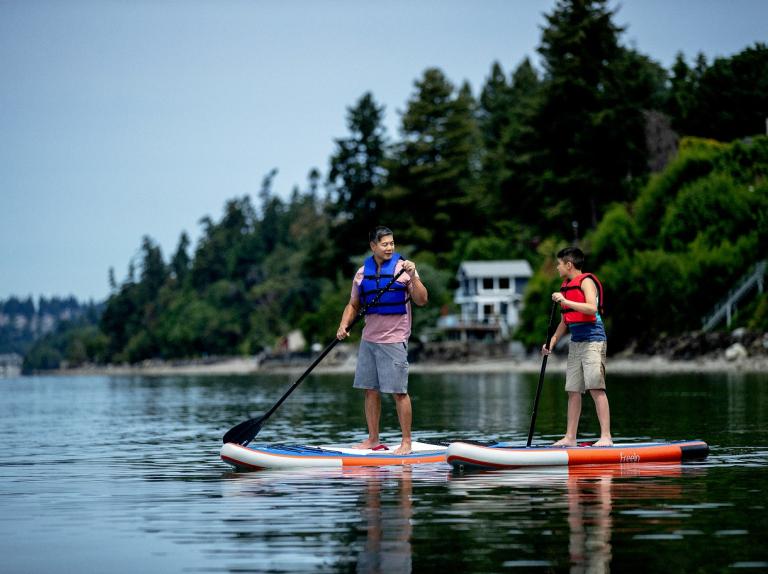
By Meagan McGuire, Seattle Southside Regional Tourism Authority
Many Destination Management Organizations (DMOs) recognize the importance of local leadership groups working together for a stronger, more coordinated economic development strategy. However, some DMOs might find the current COVID-19 crisis has made collaboration more difficult. Despite the best outward intentions, innate human behavior might be getting in the way.
Anthropological research has suggested that during times of economic hardship, members of human groups will retract within their perceived ‘clan’ in opposition of ‘the other’. Like the large imagined creature formed when millions of tiny fish swim close together, people have historically found safety within a group setting. And with the development of agriculture for many human populations some 12,000 years ago and the shift from their hunter gatherer lifestyles to one of communal settlement, job duties become more specified. This strengthened people’s dependence on each other within the group to supply them with what they needed to survive, as well as created a physical place that required defense from outsiders who might threaten inhabitants.
The forming of a bonded group identifies the participants in opposition of others. This is not necessarily of issue when the fruit is falling off the tree, but when times are tough and resources are low, humans will prioritize the survival of their own group members and defend the orchard against ‘the other’. Therefore, identification of those inside and outside of a group becomes more important. Just as Neanderthals and early humans competed for resources, we all want to come out of a crisis without becoming extinct.
Identifying who is in ‘your court’ versus who is not on ‘your team’ is based on evolutionary human behavior. Human beings perceive other human beings as members of real or imagined groups because we are all trying to survive with what we perceive as our clan intact. Members of various organizations within a destination may relate to this internal instinct and find that they are coming together in conjectural battle instead of real cooperation as we all fight for resources, supporters, and respect.
Like monkeys grooming the lice out of the fur of other monkeys, humans also form social and emotional attachments to other humans within their group to ensure the bond is tight and the group will succeed. These attachments safeguard that members will protect and nurture each other. And, with limited resources, humans will protect and nurture those they have that bond with over those they do not. Genuine relationships established with members of other community organizations, not just pursued when needed, can help reach across group barriers to merge imagined clans.
The coming together of DMOs during this time is a palpable example of the tightening of ingroup bonds during times of struggle. Self-identifying ourselves as members of the same clan, we are working together in a very collaborative way to share ideas, strategies, and toolkits with little thought of competition that might weaken the synergy. This alliance is necessary for our clan to survive, but it is also important to acknowledge who it is in our own communities that we have subconsciously or blatantly identified as ‘the other’ in order to protect and nurture our own clan.
A dichotomy exists between this genuine desire to collaborate and the innate fear of extinction. But understanding the backstory behind human behavior may, at a minimum, allow for reflection. This is uncharted territory, and we will make mistakes along the way, and perhaps maintaining perspective through examining human behavior throughout history will aid in our endurance.
About the Author

Vice President of Sales & Services
Seattle Southside Regional Tourism Authority
